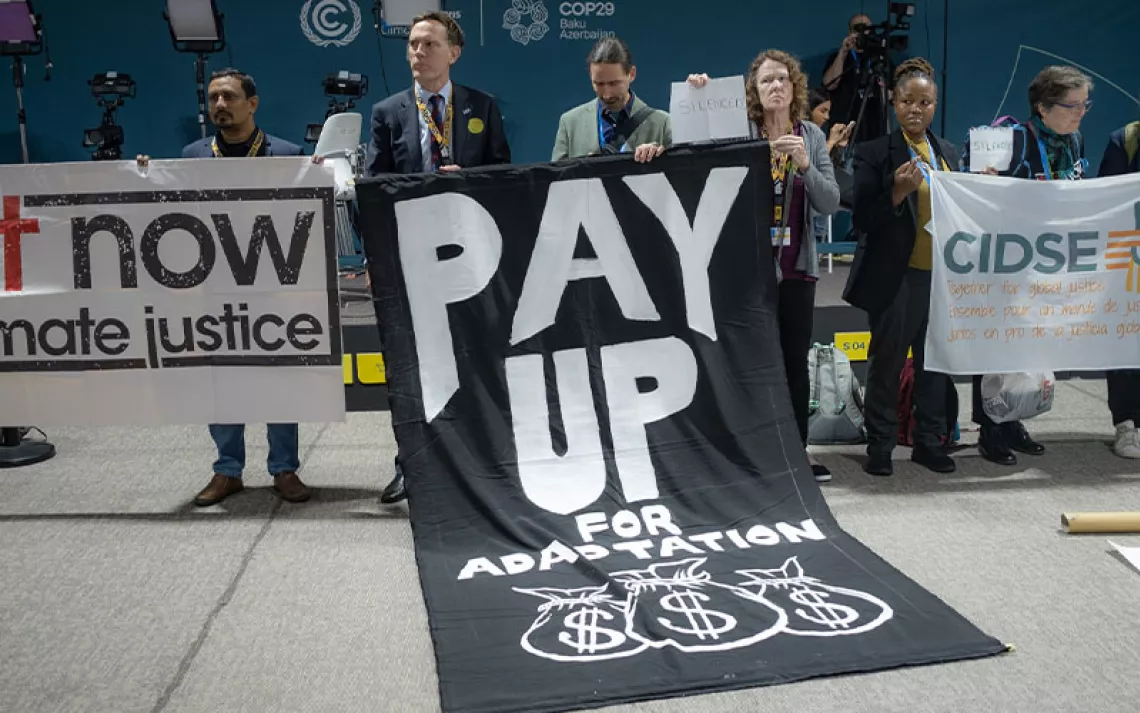ICYMI: Blue Dogs, Radioactive Boars, and Making Electricity From Tears
All the environmental news you missed from the last two months

Irish scientists have learned how to make electricity from tears.
The 2017 Atlantic hurricane season is one of the most active on record, spawning a string of monster storms that devastate parts of Florida, Houston, the U.S. Virgin Islands, Puerto Rico, and even Ireland. Weeks after Hurricane Maria, some Puerto Ricans are reduced to drinking water from wells on Superfund hazardous-waste sites.
Twice the usual number of Arctic icebergs—nearly 1,000—drift south of the 48th parallel, threatening oil platforms and ships.

Three-quarters of counties in the contiguous United States are now warm enough to support disease-bearing mosquitoes.

Thirty-one years after the Chernobyl nuclear disaster, hunters in Sweden are warned of "extremely high" radiation levels among local boars.
After a record-warm summer, wildfires ravage both Northern and Southern California.
Record-low numbers of Columbia River salmon are found in waters off the Pacific Northwest. There are, however, large numbers of warm-water-loving mackerel.
After a factory in Mumbai dumps untreated industrial waste and dyes into a river, local dogs turn bright blue.
San Francisco and Oakland sue five of the world's largest fossil fuel corporations for the cost of seawalls and infrastructure necessary to protect the cities from sea level rise and other consequences of climate change.
Washington State denies an environmental permit for a huge coal terminal at the Port of Longview, likely dooming the project.
Kenyans who produce, sell, or use plastic bags face a $40,000 fine or four years in prison.
High concentrations of antidepressants are found in the brains of fish in the Great Lakes region.
Agents from the U.S. Department of Agriculture's Wildlife Services unit shoot and kill an endangered Mexican gray wolf in Arizona.
General Motors says it will go all-electric (eventually).
A study finds plastic fibers in 94 percent of U.S. water samples—including those taken from EPA headquarters, the U.S. Capitol Building, and Trump Tower.
British Columbia will no longer allow the trophy hunting of grizzly bears.

Fewer people are dying of lightning strikes because fewer people are going outside.
This article appeared in the January/February 2018 edition with the headline "Up to Speed: Two Months, One Page."
 The Magazine of The Sierra Club
The Magazine of The Sierra Club



